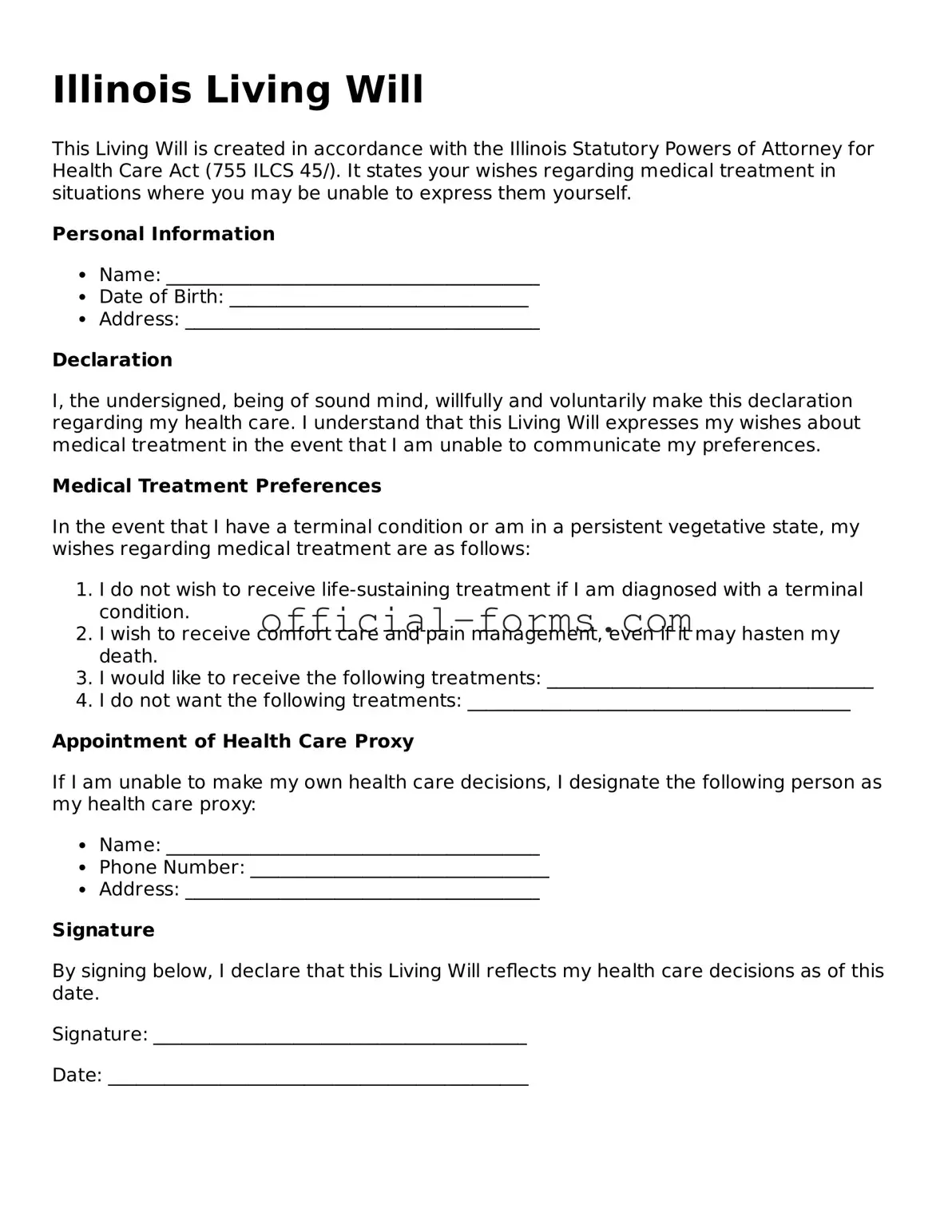Filling out the Illinois Living Will form is an important step in ensuring that your healthcare wishes are respected. However, many individuals make mistakes that can lead to confusion or even legal challenges. Understanding these common errors can help you avoid them and create a clear, effective document.
One frequent mistake is failing to clearly specify your wishes regarding medical treatment. The Living Will should explicitly state your preferences for life-sustaining treatments. If the language is vague or ambiguous, healthcare providers may struggle to interpret your intentions. This can lead to unwanted interventions or a lack of necessary care.
Another common error is neglecting to sign and date the form properly. A Living Will must be signed by the individual creating it, and it must also be dated. Without a signature, the document may be considered invalid. Additionally, if the date is missing, it can create complications regarding the timing of your wishes.
People often forget to have the document witnessed or notarized, which is a requirement in Illinois. The form must be signed in the presence of two witnesses who are not related to you and who will not benefit from your estate. Alternatively, it can be notarized. Skipping this step can render the Living Will unenforceable.
Providing insufficient personal information is another mistake. The form should include your full name, address, and date of birth. This information helps to clearly identify you and avoid any potential confusion with others who may share your name.
Some individuals overlook the importance of discussing their wishes with family members or healthcare proxies. While the Living Will itself is a legal document, having open conversations with loved ones can help ensure that everyone understands your desires. This can prevent conflicts or misunderstandings when difficult decisions need to be made.
Another error involves not reviewing the form periodically. Life circumstances can change, and so can your healthcare preferences. It is essential to revisit your Living Will regularly and update it as needed to reflect your current wishes accurately.
People sometimes fail to keep copies of their Living Will in accessible locations. After completing the document, it should be shared with family members, healthcare providers, and anyone who may need to refer to it in the future. If the document is not easily accessible, it may not be honored when needed.
Lastly, misunderstanding the limitations of a Living Will can lead to issues. While it is a powerful tool for expressing your healthcare preferences, it does not cover every possible scenario. Individuals should consider additional documents, like a healthcare power of attorney, to ensure comprehensive coverage of their wishes.

